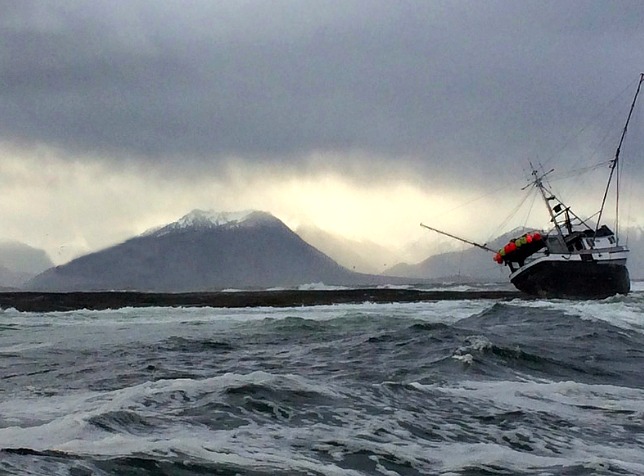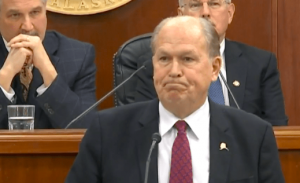The morning of March 8, 2017 ended badly for 32-year-old Craig Berumen Jr.
Berumen was well known to the Anchorage police and courts. He had a rap sheet that included suspected homicide.
When officers found his body outside the McDonald’s in Spenard after 5 am, he was already dead, hanging halfway out of an SUV that he’d been trying to exit when he was shot. Police called it a drug-related crime.
His death was eerily similar to the shooting death of 27-year-old Jennifer Jacobsen nine years earlier. In 2008, Jacobsen was shot to death late at night on Feb. 18, while trying to flee gunfire aimed at her red Chevy pickup truck outside of Berumen’s East Anchorage apartment.
At the time, prosecutors contended that Berumen, 23, Stephen Mohler Jr, 24., and Chris Binkley, 25 had made arrangements to buy about $80 worth of pot from Jacobsen, but that they actually planned to rob her.
It was a trap for the young woman, who didn’t appear to be an actual drug dealer, but may have been just doing a favor.
Binkley and Mohler were said to have been waiting in the alley when Jacobsen pulled up, and tried to rob the drugs from her. She backed the truck into a snowbank and died of multiple gunshot wounds.
Berumen, Binkley, and Mohler were indicted on second-degree murder and conspiracy to commit robbery. The three already had felony histories. Binkley and Mohler were also charged with robberies of liquor stores, convenience stores, and a hotel that occurred in several Anchorage locations weeks earlier, including one that happened the day of Jacobsen’s murder.
But the jury was never able to determine who pulled the trigger. and in 2011 acquitted Berumen on all charges. Binkley was found guilty of a weapons charge only. Mohler also walked on that charge. He’s now in at the Cordova Center, a halfway house in Anchorage. Binkley is on parole.
Nine years after Jacobsen’s shooting, Berumen was hanging out of an SUV and dying of bullet holes. And three other people are implicated in his killing.

CHAZ SHANIGAN
Shanigan, 22, was charged with Murder I, Murder II, Robbery I, and Misconduct Involving a Weapon III. Shanigan is already under lock and key at Spring Creek Correctional Center serving a prior felony sentence. But at the time of Berumen’s death this past March, he was on the lam from a halfway house, Cordova Center.

Shanigan is from Grayling, Alaska, spent time in McLaughlin Youth Center as a minor, attended Benny Benson Secondary School, an alternative program of the Anchorage School District and has been in and out of jail for much his adult life.

DEVOTAY GORDON
The 25-year-old Devon Gordon was charged with Murder II and Robbery I. Gordon was on supervised felony probation at the time of Berumen’s murder. Gordon is currently housed at Goose Creek Correctional Center serving an unrelated sentence.

NICOLE A. DIAZ
Diaz, 32, was out on bail at the time of Berumen’s murder. She’s charged with Murder I, Murder II, and Robbery I. Her whereabouts are unknown, but she has ties to California.
In April, 2017, Diaz agreed to plead guilty to forgery and theft of an accessory device, from charges that stemmed back to Oct. 10, 2016. Other charges were dismissed as part of the plea deal. She missed court dates since then and failed to appear for a hearing on Feb. 17, 2018.
Nicole Diaz is 5’01” tall, 100 pounds, with brown hair and hazel eyes.
In addition to the above murder charges,, she has a warrant for violating from probation and has a felony fail to appear warrant on charges of Theft II and Misconduct Involving a Weapon.
















